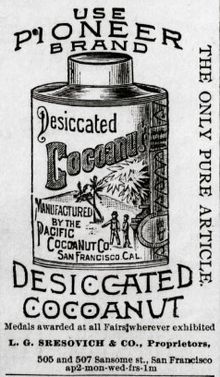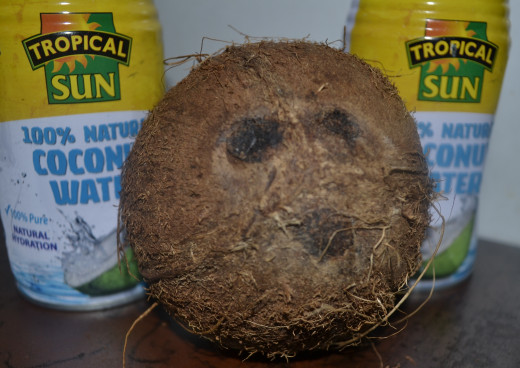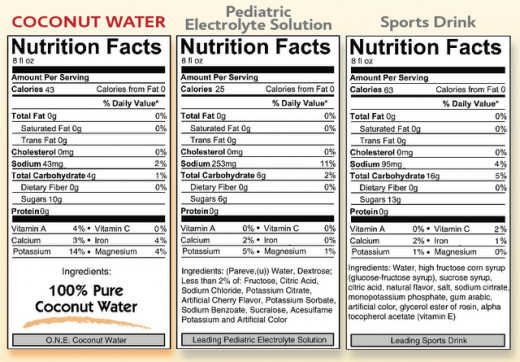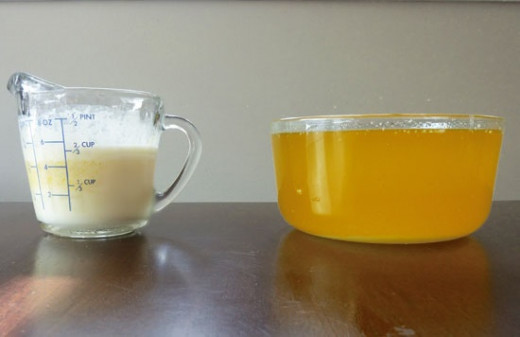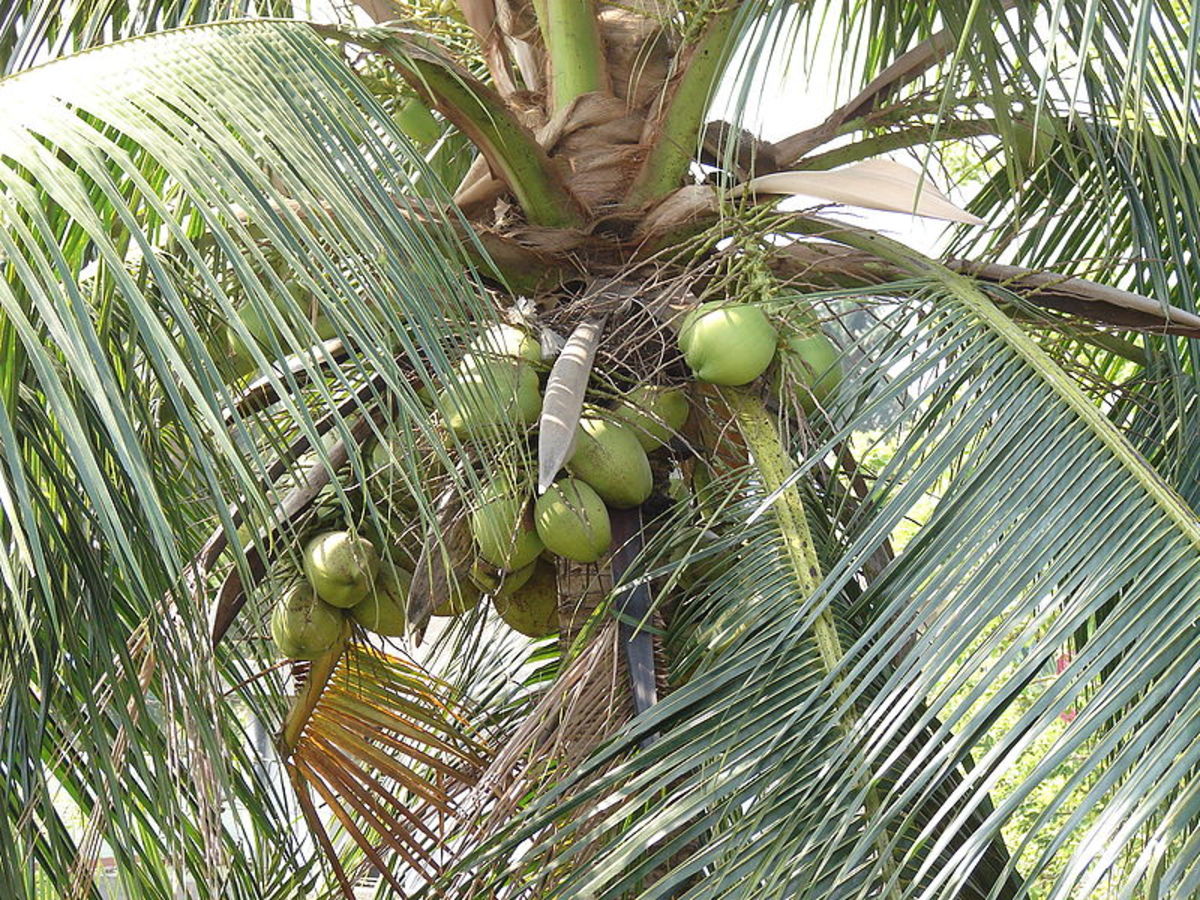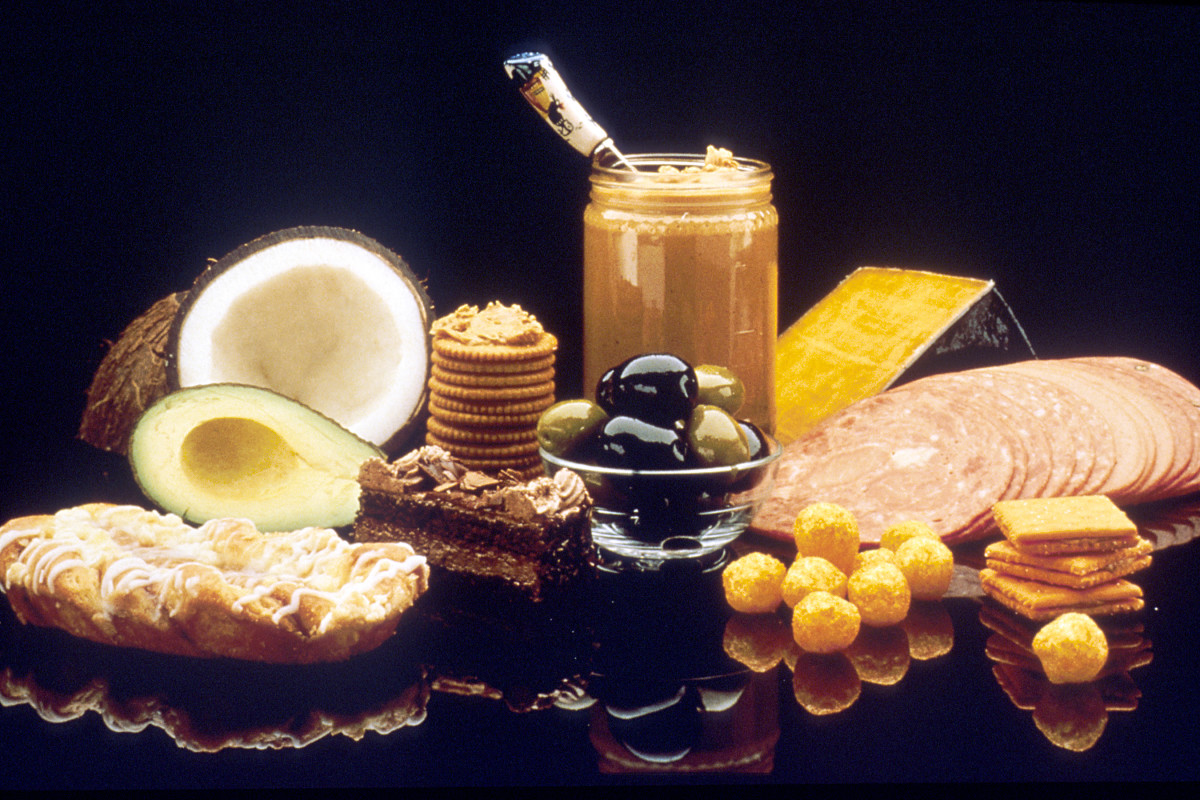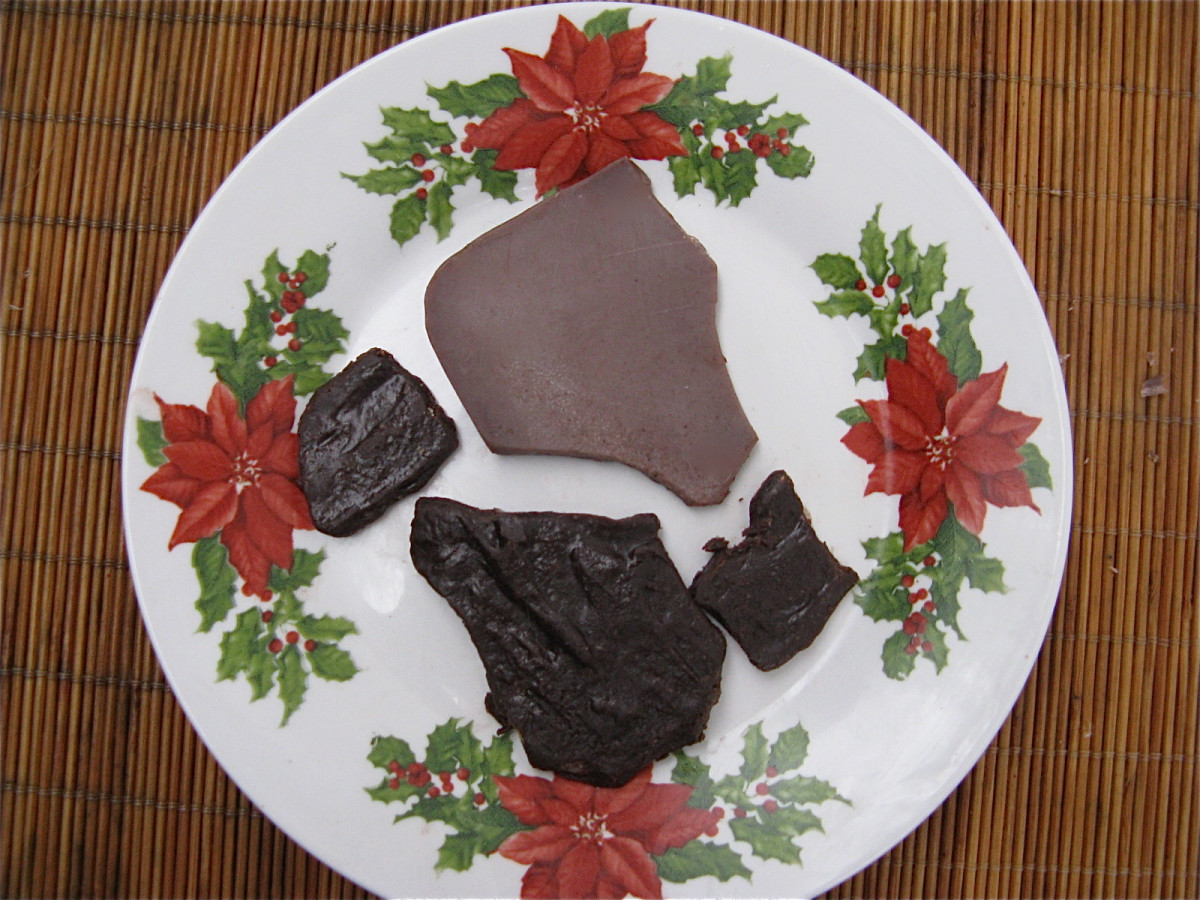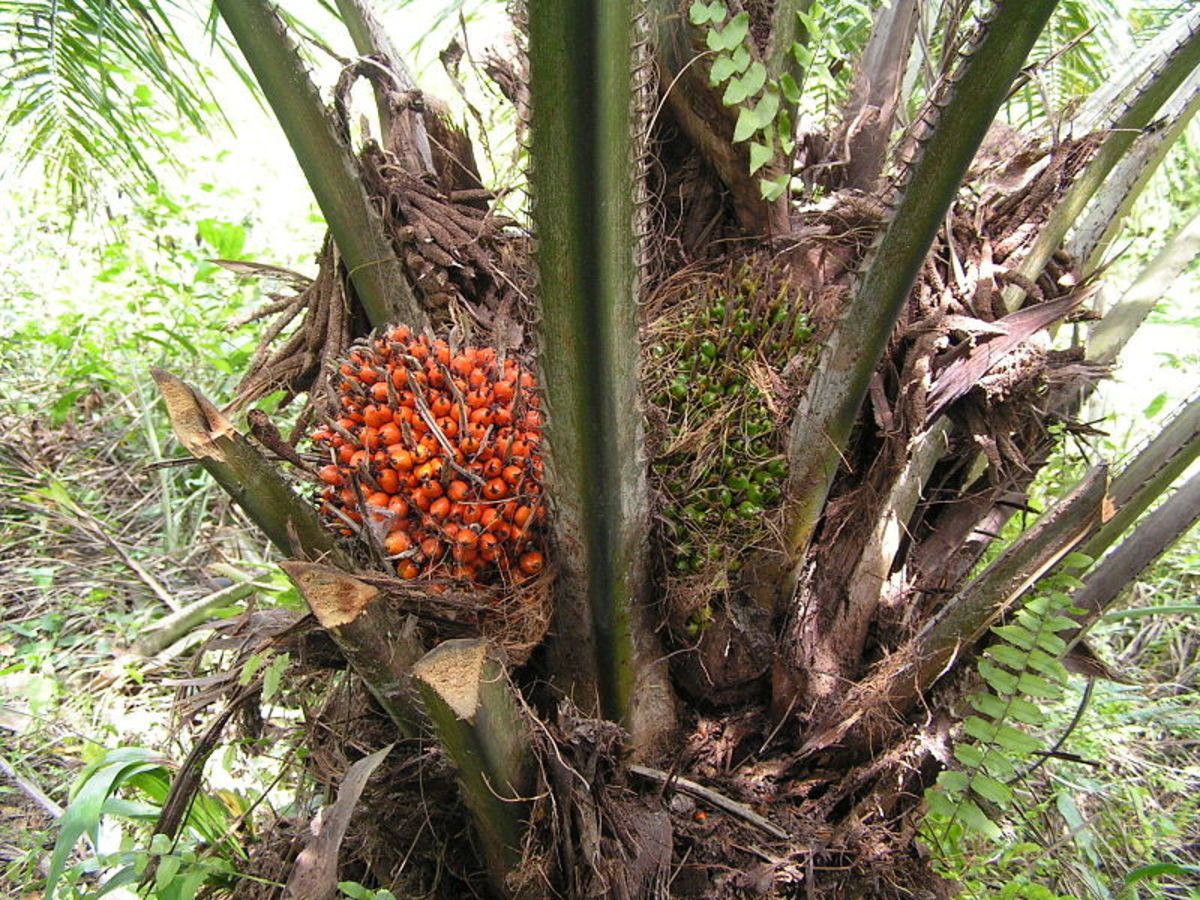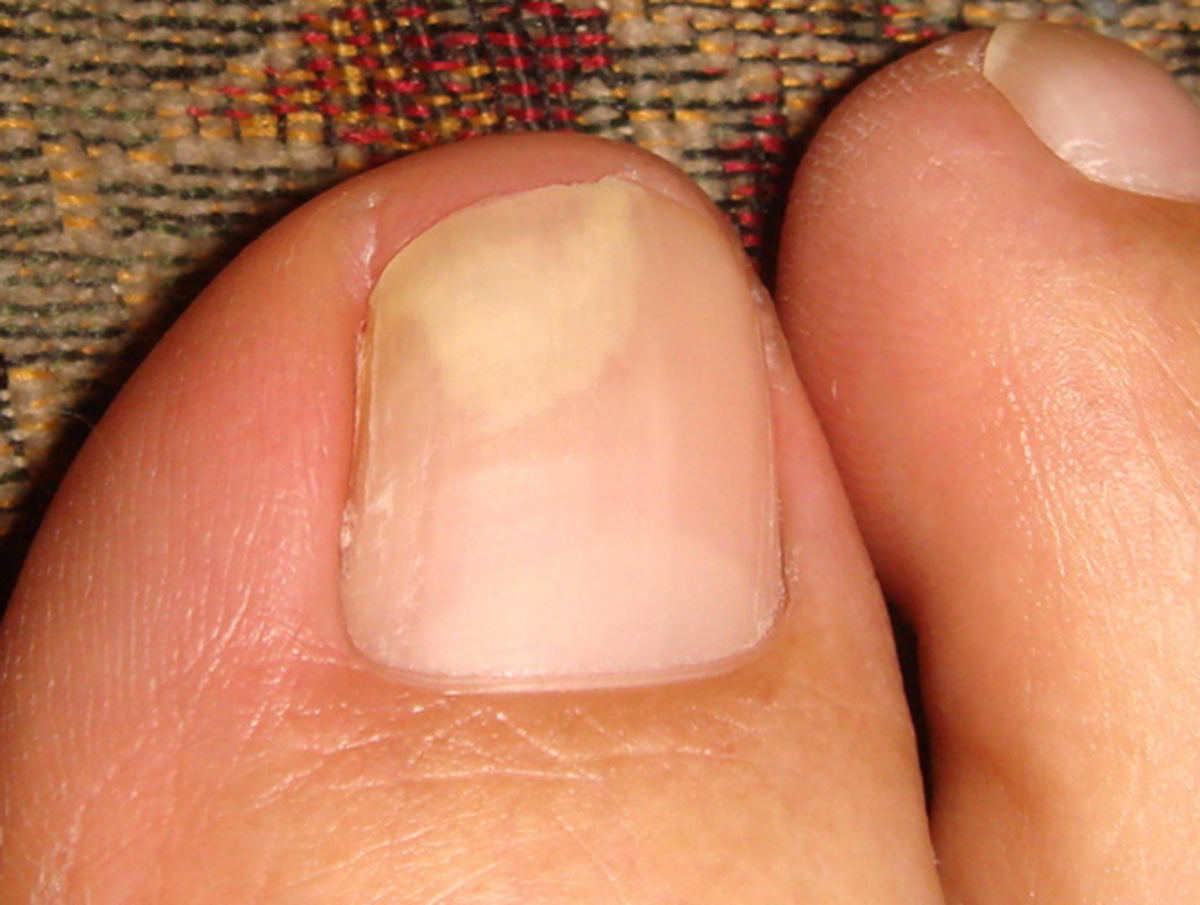The Health Benefits of Coconut: Is the Coconut Another celebrity Health Fad, or Nutritional Super Food?


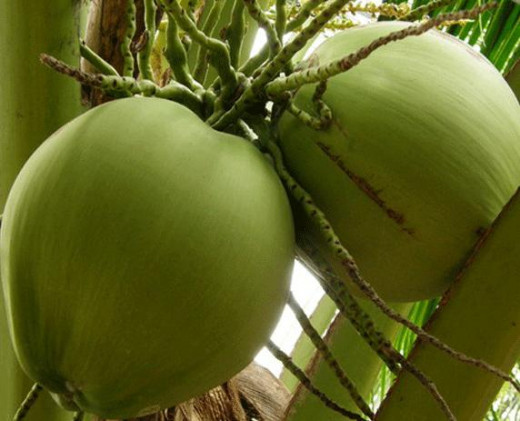
Harry Belafonte has been singing the virtues of coconut since 1957
Contains natural sugars, super hydrating, fat free, cholesterol free, nutrient-packed potassium stacked.
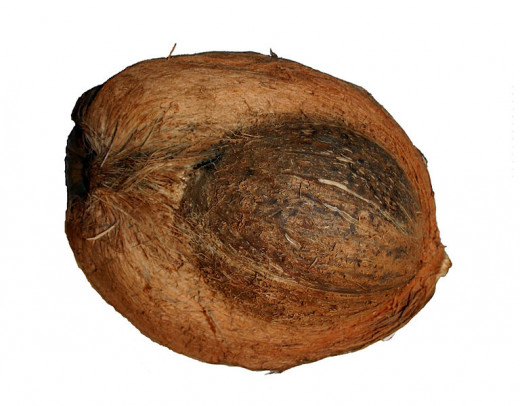
Nutritional benefits of Coconuts
Celebrity culture is a fickle, and fleeting thing. However; occasionally, we see the emergence of a trend that captures the imagination and leaves us asking why didn't we know this before? The much-maligned coconut is a case in point. Coconut milk, oil, and water have never been more sought after.
There is a growing number of supporters, including celebrities and scientists advocating the massive health benefits of the humble coconut. Celebrities across the globe are hailing the coconut as the ultimate superfruit, although comprehensive studies into the health benefits of the coconut remain sparse.
Some studies show that Coconut contains properties that can prevent or cure a variety of conditions ranging from heart disease and Alzheimer's to head lice and obesity. Coconut water is said to be the healthy natural alternative to sports drinks, containing natural sugars, electrolytes, and, even more, potassium than the super banana.
A long list of celebs including Rihanna has been photographed drinking coconut water publicly. However; what is more telling about this trend, is that many celebrities are putting their money where their mouth is, so to speak. Rihanna, Madona, Demi Moore, Mathew McConaughey and the Chilli Pepper's frontman, Anthony Kiedis, are all reported to have invested money in this product. So what is so special about coconuts?
Nuts about Coconuts
First of all, the Coconut is a fruit and not a true nut; it is classified as a fibrous one-seeded drupe. A drupe is a fruit consisting of an outer skin and a hard stony covering enclosing a seed; it is similar to a peach or olive. Drupes, including the coconut composed of three layers:
Exocarp or outer layer, which is smooth and greenish in young coconuts
Mesocarp or fleshy middle layer
Endocarp or the hard woody layer surrounding the seed.
When we buy coconuts from the supermarkets, what we often get is the endocarp with exocarp and mesocarp removed. However; when we travel to the tropics on vacation we often get the full monty, umbrella, optional, as we sip our coconut water in paradise. (if you're in the US...that's Miami and Hawaii to you). Young coconut fruits are often sold whole, with soft jelly-like inner flesh or endosperm and the delicious electrolyte filled water.
The botanical name for the Coconut Palm is Cocos Nucifera, meaning “nut-bearing,” a member of the family Arecaceae (palm family). It is a large palm capable of growing up to 30m (98ft) tall with pinnate leaves 4-6 m (13-20 ft) long. Coconut is classified into two general types, tall and dwarf. A coconut plant can yield 30 to 75 fruits per year. The term coconut can refer to the whole coconut palm, the seed or the fruit.
The word coco refers to the human head or skull and has its origins in the 16th century Portuguese and Spanish explorers who thought that the three indentations or eyes on the shell of the coconut looked like facial features; it is also referred to as “Monkey Face.”
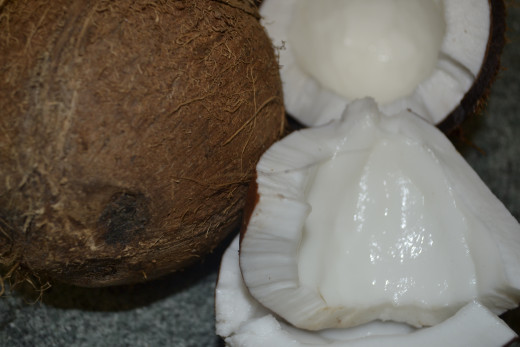
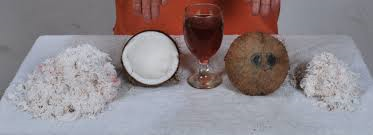
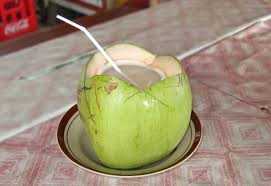
Nutritional Value per 100 g (3.5 oz) of Coconut Water
Coconut Water Nutrition: Vitamin and Mineral
| Values
|
|---|---|
Energy
| 79 K J (19 kcal)
|
Sugars
| 2.61 g
|
Dietary fibre
| 1.1 g
|
Fat
| 0.2 g
|
Protein
| 0.72 g
|
Water
| 94.99 g
|
Thiamine (vit.B1)
| 0.03 mg (3%)
|
Riboflavin (vit. B2
| 0.057 mg (5%)
|
Niacin (vit. B3)
| 0.08 mg (1%)
|
Pantothenic acid (B5)
| 0.043 mg (1%)
|
Vitamin B6
| 0.032 mg (2%)
|
Folate (vit. B9)
| 3 ug (1%)
|
Carbohydrates
| 3.71 g
|
Calcium
| 24 mg (2%)
|
Iron
| 0.29 mg (2%)
|
Magnesium
| 25 mg (7%)
|
Phosphate
| 20 mg (3%)
|
Potassium
| 250 mg (5%)
|
Zinc
| 0.1 mg (1%)
|
Carbohydrates
| 3.71 g
|
Coconut water health benefits
Coconut Water For Better Health
Coconut water is said to embody the very essence of nature, it is biologically pure, with natural salts, sugars and vitamins. Coconut water is ideally suited to aid combat fatigue and lack of energy. There are many claims that drinking pure coconut water can be beneficial in helping to shed unwanted pounds by:
-
Increasing metabolic rate and maintaining body temperature and hydration
-
Has a gentle diuretic effect that can contribute to ridding the body of waste
-
High in electrolytes and low in calories, packed with simple sugars and mineral
-
Coconut water contains many naturally occurring bioactive enzymes such as acid phosphatase, catalase, dehydrogenase, diastase, peroxidase and more. These enzymes help in the digestion and metabolism of the food we eat.
-
Despite its light consistency, the composition of minerals like calcium, iron, manganese, magnesium and zinc in coconut water is far better than in fruits like oranges.
-
Coconut water is an excellent source of B-complex vitamins like riboflavin, niacin, thiamin, pyridoxine, and folates. These are essential vitamins that require replenishing.
Many families of Alzheimer's Patients believe that coconut oil has helped to relieve symptoms
Coconut Oil Benefits
Coconut oil is high in saturated fat, and for this reason, many of us have avoided using it. We are aware that saturated fats, as a rule, are bad for our health, bu not all fats are equal.
The good news is that pure coconut oil contains an unusual medium-chain fatty acid (MCFA). Contrary to previously belief, studies have shown that coconut oil is different from other saturated fats and can help to prevent heart problems, high cholesterol and hypertension. MCFA in coconut oil can contribute to preventing atherosclerosis and reduce damage to the arteries.
To fully appreciate the health benefits of pure coconut oil, it is important to understand something about the different types of fats we consume. Omega 3 foods are said to be the world healthiest foods, Some excellent sources of these essential fatty acids are oily fish like salmon, sardines and mackerels, also walnuts, flax seeds, soybeans, etc., Omega 3 belongs to a wider group of fats known as polyunsaturated fatty acids (PUFAs).
What is unique about PUFAs like omega 3, is their chemical structure, PUFAs contain a "double carbon bonds" these are special connections that make them more flexible and interactive as fatty acids. PUFAs including omega 3s, contain at lease two double bonds, the position of the double bonds in omega 3 is unique. The simplest form of omega 3 is alpha-linolenic acid (ALA) a vitamin that is essential to our diet because the body cannot make it from scratch. Fortunately, many plants and animal foods contain ALA.
Fats are classified in two ways; the first is based on saturation, divided into saturated fats, monounsaturated fats, trans fats and polyunsaturated fats. These names describe the chemical structure of the different fats, most foods contain a mixture of all four. Saturated and trans fats are usually the ones we avoid. The second way in which fats are classified is based on molecular size, or by the length of the carbon chain of each fatty acid.
Fatty acids contain long chains of carbon atoms attached to hydrogen atoms to form short-chain fatty acids (SCFAs), medium-chain fatty acids (MCFAs), and long-chain fatty acids (LCFAs). Pure coconut oil is made up of mostly medium-chain fatty acid (MCFAs). The majority of fats in our diet, around 98 to 100%, comes from the long-chain fatty acids (LCFAs).
But why is coconut oil important? MCFAs are fats that are beneficial to our health. Virgin coconut oil is one of the best sources of medium-chain fatty acids (MCFAs). The MCFA in coconut oil rarely occurs in nature, and is highly beneficial to good health. The best source of MCFAs is coconut oil and palm kernel oil. MCFA is also an important component of breast milk.
The milk mothers feed their babies are principally lauric acid, the primary fat found in coconut oil. Milk rich in MCFAs is vital for healthy growth and development. One of the uses of coconut oil is the extraction of lauric acid which is often added to baby's formulas. MCFAs are easily digestible, it is broken down and used for energy by the body and are seldom stored as body fat or fatty deposits in the arteries.
Studies performed on dogs, show that the MCFAs in coconut oil supports healthy thyroid function, important in healthy weight management.
MCFAs, unlike long chain fatty acids (LCFAs), are easily utilized by the liver. Although more research is clearly needed to validate many of the health benefits attributed to coconut oil, the few published studies show that coconut is important in out diet for maintaining good health.
If only half of the health benefits credited to the coconut are justified, this humble fruit is still worth considering as part of a healthy well balanced diet. However, until the vertues of coconut and coconut products are confirmed by large scale research studies, the sensible strategy should be one based on moderation. Before making the decision about whether or not, to go nuts about coconut, first, take a look at the following link, and compare the countries with the highest incidence of heart disease with countries that produce and consume the most coconuts.
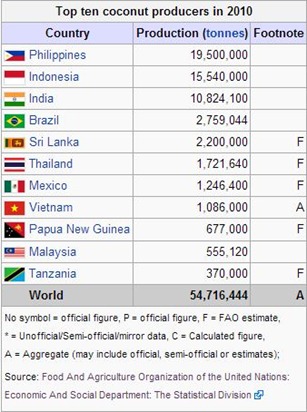
Interesting Facts about the Coconut
-
In Sanskrit, a standardized dialect of Old-Indo-Aryan, coconut palm is known as a Kalpavriksha, meaning “ tree which gives all that is necessary for living. The coconut is referred to as the tree of life because all of the plant can be used to amply provide for human needs. The palm provides a refreshing drink, fibre, food, fuel, utensils, timber material for house building and boat making, for ropes, brushes, mats and fishing nets. The palms can provide a roof to keep the rain away, coconut sap is made into a potent fermented toddy, a drink popular in the Philippines.
-
There are marketing claims that Coconut water was substituted for intra-venous solution during World War ll and in Vietnam when sterile IV solution was in short supply. However; according to an article in Wikipedia, there is a single documented case where coconut water was used for IV hydration when medical saline was unavailable. This is not generally recommended by most physicians today, although it was common practice during the Khmer Rouge regime in Cambodia from 1975 to 1979 and is on the list of medical practices for which the Pol Pot regime should be prosecuted for crimes against humanity
-
The Coconut growing regions are found as far north as Hawaii and as far south as Madagascar.
-
Coconut palm takes up to one year to mature
-
The tree blooms up to 13 times in a year
-
Yields a continuous harvest year round
-
Originally, only 60 species of Cocos palm were identified, currently, although the plant is a monotypic with a single species, nucifera, there are greater than 80 varieties of coconut palms.
-
The coconut is the largest seed known
-
Sir Francis Drake called the coconut “nargils” or Indian coconuts a common term used until the word coconut was established in the 1700's
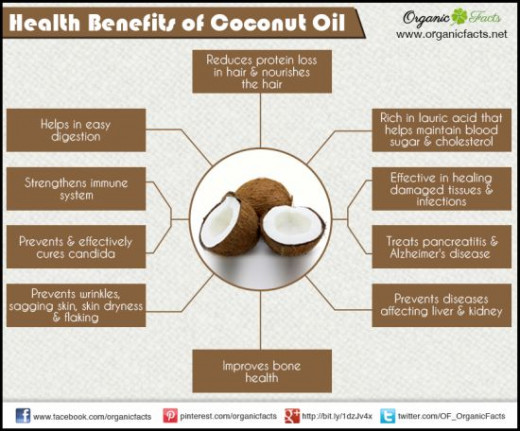
The familiar swaying palms of the coconut are evident throughout the tropics, but the true origin of this remarkable plant has been hotly debated and much disputed. Coconut fossil has been found in various countries, as far apart as India and New Zealand. However; the consensus is that the Coconut Palm came from the southwest Pacific and reached Africa later. The plant subsequently spread to most of the tropics and subtropics through the activities of humans and the ocean currents. Historians speculated that Malaysian sailors first introduced the coconut to Madagascar in the first century A.D., from there, the coconut plant could have reached the coast of mainland East Africa.
Coconut palms has been featured in Indian writings as far back as the 4th century BC. One of the earliest mentions of coconut dates back to Sinbad the sailor, in “One thousand and one nights.” Sinbad is known to have bought and sold the fruits during his 5th voyage. There is also reference made in the writings of Marco Polo in 1280 while he was in Sumatra.
Are You Nuts About Coconut?
So what do you think?

Health Benefits of Coconut
Action
| Health Benefits of Coconut
| Research
|
|---|---|---|
Antiviral
| Kills viruses that causes influenza, herpes, measles, hepatitis, SARS, AIDS
| Asian Pacific Journal of Tropical Medicine
|
Antibacterial
| Kills bacteria which causes ulcers, throat infection, urinary tract infections, gum disease, pneumonia and other diseases
| Asian Pacific Journal of Tropical Medicine
|
Antifungal
| Kills fungi and yeasts that cause candidiasis, ringworm, arthlete's foot, thrush, diaper rash, and other infections.
| Asian Pacific Journal of Tropical medicine
|
Boosts Energy
| Enhances endurance and physical performance, provide electrolytes and hydration.
| |
Improve Digestion
| Improve digestion and absorption of nutrients like vitamins, minerals and amino acids,
| |
Maintain Blood sugar levels
| Improve insulin secretion and the utilization of blood glucose
| |
Improve Malabsorption Problems
| Improve calcium and magnesium absorption, helps to relieve problems associated with malabsorption syndrome, cystic fibrosis, Crohn's disease, ulcerative colitis and stomach ulcers.
| |
Heart healthy
| Improve cholesterol ratio to reduce risk of heart disease. Protect arteries from injuries that causes atherosclerosis and heart disease.
| |
Help to prevent obesity and weight problems
| Increases metabolism, lower in calories than other fats.
| |
Ease Symptoms of Alzheimer's
| May help to boosts brain energy supply, by making more medium chain fatty acids used to make more ketones (brain food).
|
While there are many claims made on the benefits of coconut oil, including it's positive action on cardiovascular health, more research is needed, coconut oil contain high levels of lauric acid, a saturated fat known to raise blood cholesterol levels
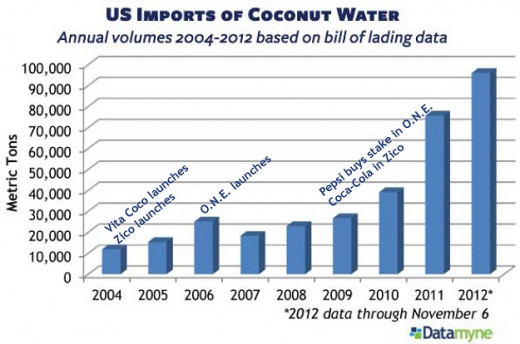
Coconut, a good source of fibre in the 1890s
